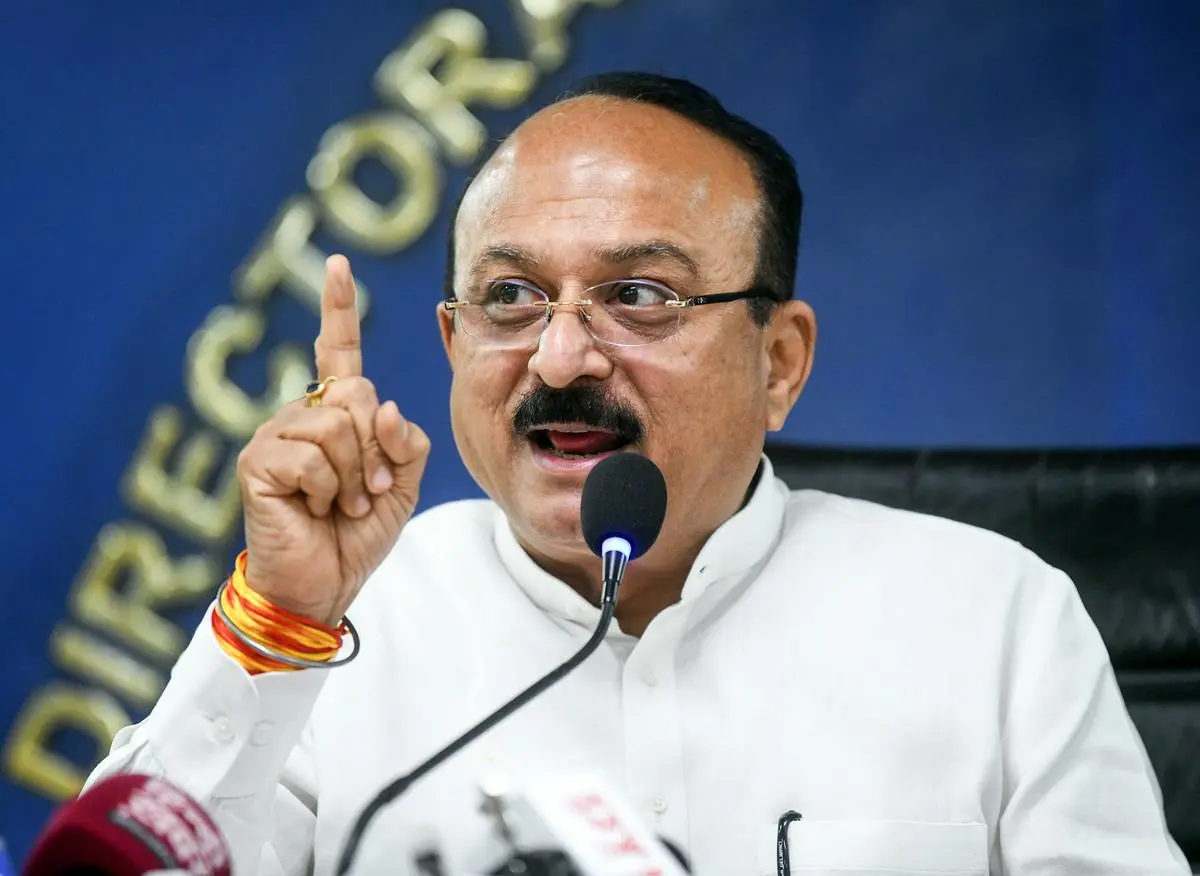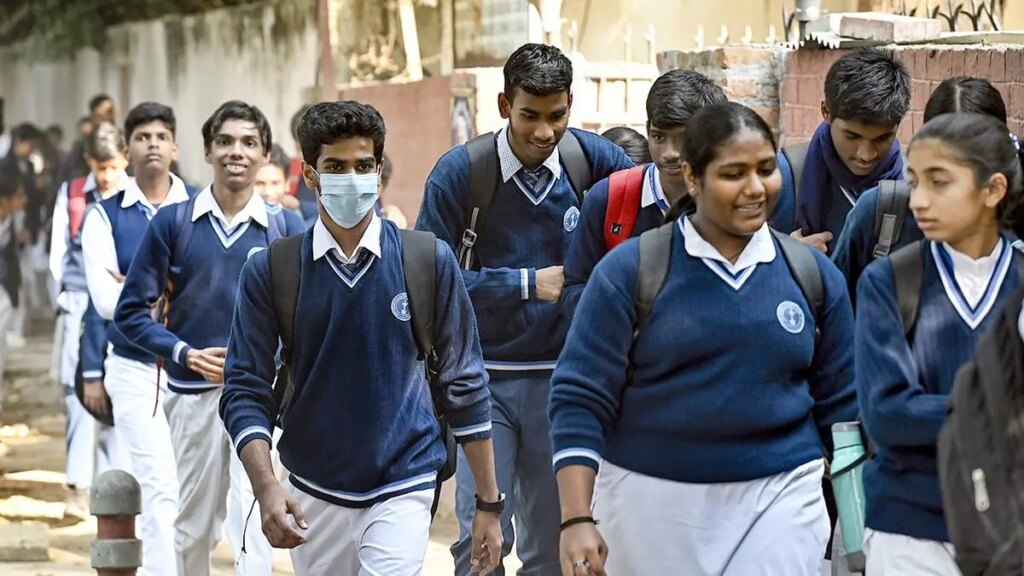In recent weeks, several prominent private schools in Delhi have come under fire from parents for allegedly raising fees without proper approvals, sparking protests and renewed concerns about the accessibility and affordability of private education in the city.
Schools such as Delhi Public School (DPS) Dwarka, Maharaja Agrasen Public School, Indraprastha International School, Birla Vidya Niketan, and others have faced backlash over steep hikes that parents claim were neither justified nor transparent. While the Aam Aadmi Party claims to have curbed arbitrary fee hikes during its tenure, families allege that such increases have continued unchecked since 2021, with little oversight from either school administrations or the Directorate of Education (DoE). The new BJP-led government has also come under criticism, with parents accusing it of enabling “fee profiteering” just a month after coming to power.
According to education watchers, at the heart of the issue is a broader crisis: the rising cost of private education in India. A recent survey by LocalCircles, a citizen engagement platform, found that 44 per cent of parents across India reported a 50 to 80 per cent fee hike in the past three years, with 8 per cent saying it exceeded 80 per cent. This has raised concerns about who can access these so-called elite educational spaces.
Also Read | Budget 2025: Education and healthcare spending betrays India’s demographic advantage
Pankaj Gupta, whose son studies at Maharaja Agrasen Model School in North West Delhi, said the school has raised fees every year since 2021–22—even after the DoE rejected its proposal for 2023–24. “The fee is increasing every year without DoE permission. Their order clearly rejected the hike,” Gupta told Frontline. “In three or four schools, the increase has ranged from 50 to 100 per cent.”
Lack of transparency
When questioned, schools often cite operational deficits and delayed government reimbursements for students from economically weaker sections (EWS). But Gupta alleges a lack of transparency. “When I was the PTA [parent teacher association] general secretary (2017–21), I asked them for a letter about EWS reimbursements to hold the government accountable. They refused. That tells me they’re hiding something.” Under the Right to Education Act, schools on public land allotted at concessional rates must provide free education to EWS children. Other private unaided schools (those not given land or other facilities on concessional rates by the government) are eligible for reimbursements from the Delhi government for these students.
Gupta also alleged collusion between schools and the government. “Delhi’s Education Minister, Ashish Sood, said 1,677 schools will be audited. But why hasn’t anyone acted on earlier complaints? The officers responsible should be suspended,” he said, adding that the government hasn’t asked parents to withhold fee payments until audits are complete, leaving families to bear the burden. “Whether it’s the old or new government, they’re all misleading us. The school is misleading us. We’re being squeezed from both sides.”
He also rejected the AAP’s claim that it had controlled fee hikes. “After 2021–22, the hikes continued. We complained even then, but the Delhi government didn’t act.”
While Maharaja Agrasen Model School has not denied students access to classes or exams, Gupta pointed to subtler forms of harassment. “They’ve split classrooms into air-conditioned and non-air-conditioned sections. Two years ago, they made air conditioning charges compulsory. We protested, so they removed the word ‘compulsory’ and simply divided the class. The fees are the same, but teachers shame kids in non-AC rooms, saying things like, ‘Your friends have AC because their parents care more.’” He added, “When we raise concerns about academics, teachers blame the ‘lower-income’ background of other students. It’s affecting our children emotionally. One day they might refuse to go to school.”
Gupta and other parents are mobilising to create a federation across 50 schools and are considering legal action.

Delhi Education Minister Ashish Sood addresses a press conference on private schools allegedly arbitrarily increasing their fees, in New Delhi on Apr 7, 2025.
| Photo Credit:
Amit Sharma/ANI
Another parent, speaking anonymously, said fees for their two children at Birla Vidya Niketan rose from Rs.64,000 to Rs.80,000 per quarter without prior notice. “They cited air conditioning, but there was no consultation or DoE approval. Terms like ‘development fees’ or ‘annual charges’ are never explained. We’ve seen hikes every year, but this one was a shock.”
“We don’t want to harm the school’s reputation—we’ve been part of the community for years. But this is unjust. Parents deserve respect and transparency,” the parent said, adding that in the political back-and-forth between the AAP and the BJP, there is growing fear that children may be harassed in school.
According to the school’s website, Maharaja Agrasen Model School first announced a 19 per cent hike in tuition fees for 2024–25, effective April 1, 2024. After parent protests, the school rolled back 10 per cent in March 2025 and implemented a 9 per cent hike instead, with arrears to be paid in three instalments between April and June. In contrast, Birla Vidya Niketan’s website only shows the 2023–24 fee structure, with no mention of any hike. Parents say they received no prior notice.
Frontline reached out to both schools but received no response.
Harassment of students over unpaid fees
According to Aprajita Gautam, president of the Delhi Parents Association, only 335 of the 1,677 recognised private schools in Delhi are legally required to seek DoE approval for fee hikes. “That means 80 per cent can raise fees without oversight,” she said.
Under the Delhi School Education Act and Rules (DSEAR), 1973, private unaided schools on government-allocated land must get DoE approval for any fee hike. While 355 such schools fall under this rule, 1,677 operate outside it. In May 2024, the Delhi High Court stayed the DoE directive requiring such schools to seek prior approval. Under DSEAR, the DoE is also responsible for examining schools’ financial records annually.
Even among the 20 per cent of schools requiring prior clearance, many obtained a stay from the High Court and went ahead with hikes in 2023 and 2024. “This has opened the floodgates,” said Gautam. She also questioned the justification schools give. “They say they need funds to pay teachers. But Education Department records show many of these schools don’t pay proper salaries. They’re manipulating funds.”
“The cumulative effect of annual hikes is massive,” she explained. “A 30 per cent hike on Rs.10,000 becomes Rs.13,000. The next year, another 30 per cent brings it to Rs.16,900. That’s unsustainable. Inflation and salary increases don’t match this. That’s why parents are protesting.”
“If this continues, the middle class won’t be able to afford private education. Government schools lack facilities. Where will our children go?”Aprajita GautamPresident, Delhi Parents Association
Reports of student harassment over unpaid fees are growing. Social media is filled with testimonies, including videos from DPS Dwarka, where children were allegedly made to sit separately for not paying increased fees. Parents say students whose families resisted the hikes have been barred from regular classes since March. “This kind of targeting is unacceptable,” said Gautam.
“This isn’t new,” she added. “We’ve sent letters. Departments have issued circulars. But implementation is zero. That’s why we’re urging parents to speak up now. Without protests, nothing changes.”
Gautam, who has long advocated for fee regulation, said fees have doubled over the last decade. “There’s no transparency. Schools report one structure to the government and charge parents another. RTIs show they list Rs.2,500 for items like almanacs or food—yet parents still buy those separately. It’s plain manipulation.”
She also alleged that many schools still collect cash, despite regulations. “They take cash for annual functions, domestic and foreign trips. None of this is shown in the books. The Modi government banned such cash transactions, but schools ignore it. And they still don’t publish financial records.”
Deeper malaise beyond political theatre
Amid growing controversy, Education Minister Sood announced city-wide audits led by sub-divisional magistrates. Data on fee hikes will be posted on the DoE website. He blamed the AAP for allowing unchecked hikes, claiming only 75 schools were audited annually over the last decade. Chief Minister Rekha Gupta, he said, will head a high-level audit committee, and non-compliant schools will face action.
Former Education Minister Atishi countered these claims, accusing the BJP of siding with the “education mafia”. In a letter to Chief Minister Gupta, she urged a halt to fee collection until audits are complete. She cited reforms during the AAP government—mandatory audits, fee caps, and even refunds where overcharging was found—and warned against a return to “commercialised education”. She alleged that fees have risen by 20–82 per cent since the BJP came to power.
Also Read | The blackboard crisis
Despite the political exchange, parents say no party has taken meaningful steps to address fee hikes or ensure audits. Gupta remains unconvinced by AAP’s claims. “The hikes continued after 2021–22. We filed complaints. Nothing changed. The AAP is only acting now for political mileage. No government has done real work.”
Gautam, too, is sceptical of the BJP’s promises. “This is political theatre. The audits have already happened. The data exists. What’s missing is the will to act. There’s no need to start from scratch—just implement the findings.” She warned of a deeper malaise. “If this continues, the middle class won’t be able to afford private education. Government schools lack facilities. Where will our children go?” She added that schools are now running their own publishing houses and selling books directly to parents. “Education has become a business. No one’s thinking about the long-term consequences.”
Parents are now demanding three key actions: reinstate the 2015–16 fee structure, freeze hikes until audits are completed, and stop vague or cash-based charges. More than anything, they want to be treated as stakeholders—not just fee-payers. “Schools run on the trust and support of parents,” said one parent. “We believe the government will protect our children. But that protection must begin now.”
Source:https://frontline.thehindu.com/news/delhi-private-school-education-fee-hike-parents-protests/article69448557.ece

